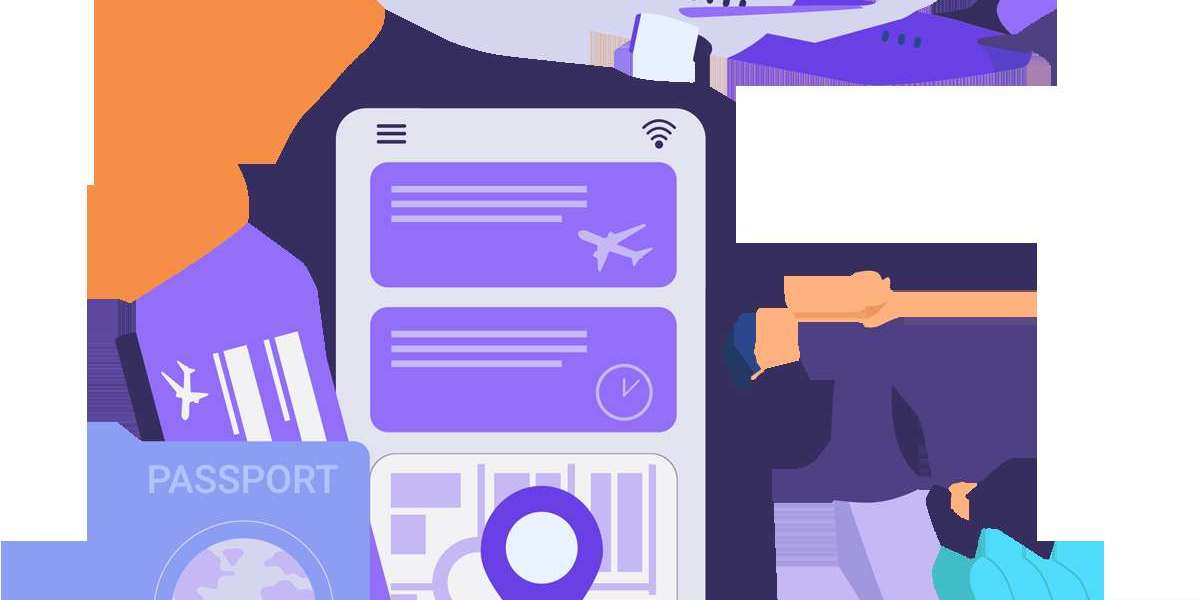The travel industry has experienced rapid growth over the past decade, driven by digital advancements and an increase in online booking preferences. Travel booking software has become a core component for businesses in this industry, from travel agencies to hotels and airlines. It allows businesses to streamline operations, enhance customer experiences, and boost revenue. However, choosing the right software can be challenging due to the variety of options available in the market.
When developing or selecting travel booking software, it's essential to focus on specific features that can elevate the service quality, improve operational efficiency, and offer seamless experiences for users. In this article, we’ll explore the top features to look for in travel booking software development, which can set your business apart in a competitive market.
1. User-Friendly Interface
A user-friendly interface is the foundation of successful travel booking software. Customers prefer booking services that are intuitive, easy to navigate, and hassle-free. A simple yet effective design ensures that even users with minimal tech-savviness can book trips without facing frustration.
A well-designed interface should include:
- Easy-to-use search and filter options for flights, hotels, and car rentals.
- Clear step-by-step booking processes that guide users through the reservation journey.
- Mobile optimization for users booking on smartphones or tablets.
By providing an intuitive experience, you encourage more users to complete their bookings and come back for future travel needs.
2. Secure Payment Gateway Integration
The security of transactions is a critical concern when it comes to online bookings. A secure payment gateway is essential to protect sensitive customer data, such as credit card details and personal information. Integrating a reliable payment gateway not only secures your platform but also builds trust with customers.
Look for features such as:
- Multiple payment options like credit cards, debit cards, net banking, and digital wallets.
- SSL encryption to secure the data during transactions.
- Fraud detection tools to prevent unauthorized payments.
Ensuring that your booking software integrates with trusted, secure payment systems can significantly reduce the risk of data breaches and fraud.
3. Real-Time Availability Updates
Customers expect real-time information on availability when booking flights, hotels, and car rentals. Real-time updates help avoid issues like overbooking and discrepancies between available inventory and bookings.
The key features to consider include:
- Live data synchronization across all booking channels.
- Instant updates on flight or hotel availability, cancellations, or changes in policies.
- Real-time pricing updates, ensuring that customers see the most current prices.
Real-time availability also helps businesses manage inventory more effectively and avoid overbookings, enhancing the overall customer experience.
4. Multi-Platform Compatibility
In today’s digital world, customers may access booking services on various devices like desktops, tablets, and smartphones. Multi-platform compatibility ensures that your software delivers a seamless experience across all platforms.
Key features to ensure include:
- Responsive design for smooth access on any device.
- Cross-browser compatibility to ensure users can access the platform on popular browsers like Chrome, Firefox, Safari, and Edge.
- Integration with mobile apps for customers who prefer booking via their smartphones.
By offering a consistent user experience across different platforms, you cater to a wider audience and meet the needs of modern travelers.
5. Personalized User Experience
Personalization is becoming a key trend in the travel industry. Travelers appreciate a booking experience tailored to their preferences and needs. A well-designed booking software can use customer data to suggest personalized recommendations for destinations, accommodations, and activities.
Look for features such as:
- Custom recommendations based on past bookings and search history.
- Personalized offers and discounts based on customer behavior.
- User profiles where customers can save preferences, past bookings, and payment methods for faster future bookings.
Personalized experiences increase customer satisfaction, drive loyalty, and encourage repeat business.
6. Booking Management and Customer Support
Your travel booking software should include comprehensive booking management tools for both customers and admin users. For customers, this includes features like the ability to modify bookings, cancel reservations, and access booking history.
For business owners, administrative tools are crucial to track customer bookings, monitor inventory, and manage operations. Additionally, offering robust customer support within the software is a must-have feature. This can be in the form of:
- 24/7 live chat support or chatbots for instant responses.
- Ticket-based systems for issue resolution.
- Easy refund and cancellation processes for users.
The goal is to provide a seamless experience for users, from booking to post-booking support.
7. Advanced Search Filters
To make the booking process faster and more convenient, the software should offer advanced search filters. Users may have specific preferences when booking, such as price range, star ratings, location, or amenities. Providing these filters makes it easier for customers to find what they are looking for without spending too much time sifting through options.
Features to include:
- Filters for location, price range, date, number of passengers, and other amenities.
- Filters for property types, such as hotels, resorts, or homestays.
- Search by preferences, such as pet-friendly hotels or non-stop flights.
Advanced search capabilities significantly improve the customer experience and reduce bounce rates on your platform.
8. Integration with Third-Party APIs
In the travel industry, integrating with third-party APIs can enhance the functionality of your booking software. This allows the system to fetch additional data such as:
- Flight information from airlines.
- Hotel availability and pricing from global hotel chains or local suppliers.
- Local activities and tours through tour operator APIs.
By integrating these external services, you can offer customers a one-stop solution for booking their entire trip, from flights to activities, making your platform more attractive and competitive.
9. Analytics and Reporting Tools
To track the performance of your booking software, it's important to include analytics and reporting tools. These features provide valuable insights into customer behavior, sales trends, and booking patterns.
Key features include:
- Revenue reports to track total bookings and earnings.
- Customer analytics to understand demographics, preferences, and behavior.
- Booking trends to identify popular destinations, services, and times.
These insights help businesses make data-driven decisions, optimize operations, and plan marketing strategies effectively.
10. Scalability and Flexibility
As your business grows, so will the demand for your travel booking software. Scalability is crucial to ensure that your platform can handle increased traffic, transactions, and bookings without slowing down. Whether you’re expanding into new regions or adding new services, your booking software must be flexible enough to accommodate future growth.
Ensure that your software is:
- Cloud-based, allowing for easy scalability and updates.
- Capable of supporting high volumes of users without performance issues.
- Customizable to add features as your business needs evolve.
Scalable software ensures that your travel business can grow without encountering performance bottlenecks.
Conclusion
Developing a travel booking software platform requires a careful balance between functionality, ease of use, and innovation. The features discussed above are essential for creating a software solution that meets the needs of both businesses and customers in the dynamic travel industry.
By focusing on user-friendly interfaces, secure payment gateways, real-time updates, and personalized experiences, you can ensure your software stands out from the competition and provides maximum value to your users. With the right features in place, your travel booking software will not only enhance the customer journey but also drive efficiency and profitability for your business.








